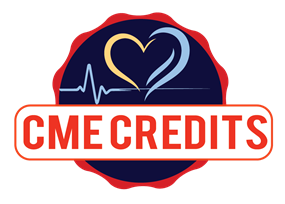
Miguel Guillermo Garber
Garber,Spanish Society of Regenerative Medicine and Cell Therapy (SEMERETEC), Spain
Title: Regeneration and repair in cardiovascular disease, obstacles and opportunities
Biography
Biography: Miguel Guillermo Garber
Abstract
The primary cause of death among chronic diseases worldwide is ischemic cardiovascular diseases, such as stroke and myocardial infarction. Recent evidence indicates that adult Mesenchymal stem cells therapy aimed at restoring organ function, and cardiovascular repair represent promising strategies to treat cardiovascular diseases, and have been recognized as one of the potential therapeutic agents, following several tests in animal models and clinical trials. In the process, various sources of mesenchymal stem cells have been identified which help in cardiac regeneration by either revitalizing the cardiac stem cells or revascularizing the heart. Although mesenchymal cell therapy has achieved considerable admiration and promising therapeutic strategy is the priming of therapeutic MSCs with stem cell modulators before transplantation. therapeutic efficacy of MSCs in vitro or in vivo from cell priming to tissue engineering strategies, for use
some challenges still remain that need to be overcome in order to establish it as a successful technique, questions going on: Which specific types of stem cells are likely to be most effective?, Can heart cells divide, and, if so, can we develop strategies to stimulate the growth and differentiation of the cardiac cells left in the injured heart to promote recovery of tissue mass and function?
Nobody knows at the time being what will be the best therapy for our patients.”,“We may need different cells for different patients and different cells for drug discovery or tissue engineering.” Which cell(s) will ultimately prove to be useful in patients is a matter of opinion.
1.Bergmann O, et al. (2009) Evidence for cardiomyocyte renewal in humans. Science 324(5923):98-102.
2.Friedenstein AJ, et al. (1974)
3.Precursors for fibroblasts in different populations of hematopoietic cells as detected by the in vitro colony assay method. Exp Hematol 2(2):83-92.
4.Pittenger MF, et al. (1999) Multilineage potential of adult human mesenchymal stem cells. Science 284(5411):143-147.
5.Sekiya I, Vuoristo JT, Larson BL, & Prockop DJ (2002) In vitro cartilage formation by human adult stem cells from bone marrow stroma defines the sequence of cellular and molecular events during chondrogenesis. Proc Natl Acad Sci U S A 99(7):4397-4402.
6.Wagner W, et al. (2005) Comparative characteristics of mesenchymal stem cells from human bone marrow, adipose tissue, and umbilical cord blood. Exp Hematol 33(11):1402-1416.
7.Rasmusson I (2006) Immune modulation by mesenchymal stem cells. Exp Cell Res 312(12):2169-2179.
8.Arminan A, et al. (2010) Mesenchymal stem cells provide better results than hematopoietic precursors for the treatment of myocardial infarction. Journal of the American College of Cardiology 55(20):2244-2253.
9.Gnecchi M, et al. (2005) Paracrine action accounts for marked protection of ischemic heart by Akt-modified mesenchymal stem cells. Nat Med 11(4):367-368.
10.Pillai RS (2005) MicroRNA function: multiple mechanisms for a tiny RNA? Rna 11(12):1753-1761.
11.Zhao Y & Srivastava D (2007) A developmental view of microRNA function. Trends in biochemical sciences 32(4):189-197.
12.Eulalio A, et al. (2007) Target-specific requirements for enhancers of decapping in miRNA-mediated gene silencing. Genes Dev 21(20):2558-2570.
13.Small EM & Olson EN (2011) Pervasive roles of microRNAs in cardiovascular biology. Nature 469(7330):336-342.
14.Matkovich SJ, et al. (2009) Reciprocal regulation of myocardial microRNAs and messenger RNA in human cardiomyopathy and reversal of the microRNA signature by biomechanical support. Circulation 119(9):1263-1271.
15. Sanina C., Hare J. M. Mesenchymal stem cells as a biological drug for heart disease: where are we with cardiac cell-based therapy? Circulation Research. 2015;117(3):229–233. doi: 10.1161/circresaha.117.306309
16.62. Squillaro T., Peluso G., Galderisi U. Clinical trials with mesenchymal stem cells: an update. Cell Transplantation. 2016;25(5):829–848. doi: 10.3727/096368915x689622

